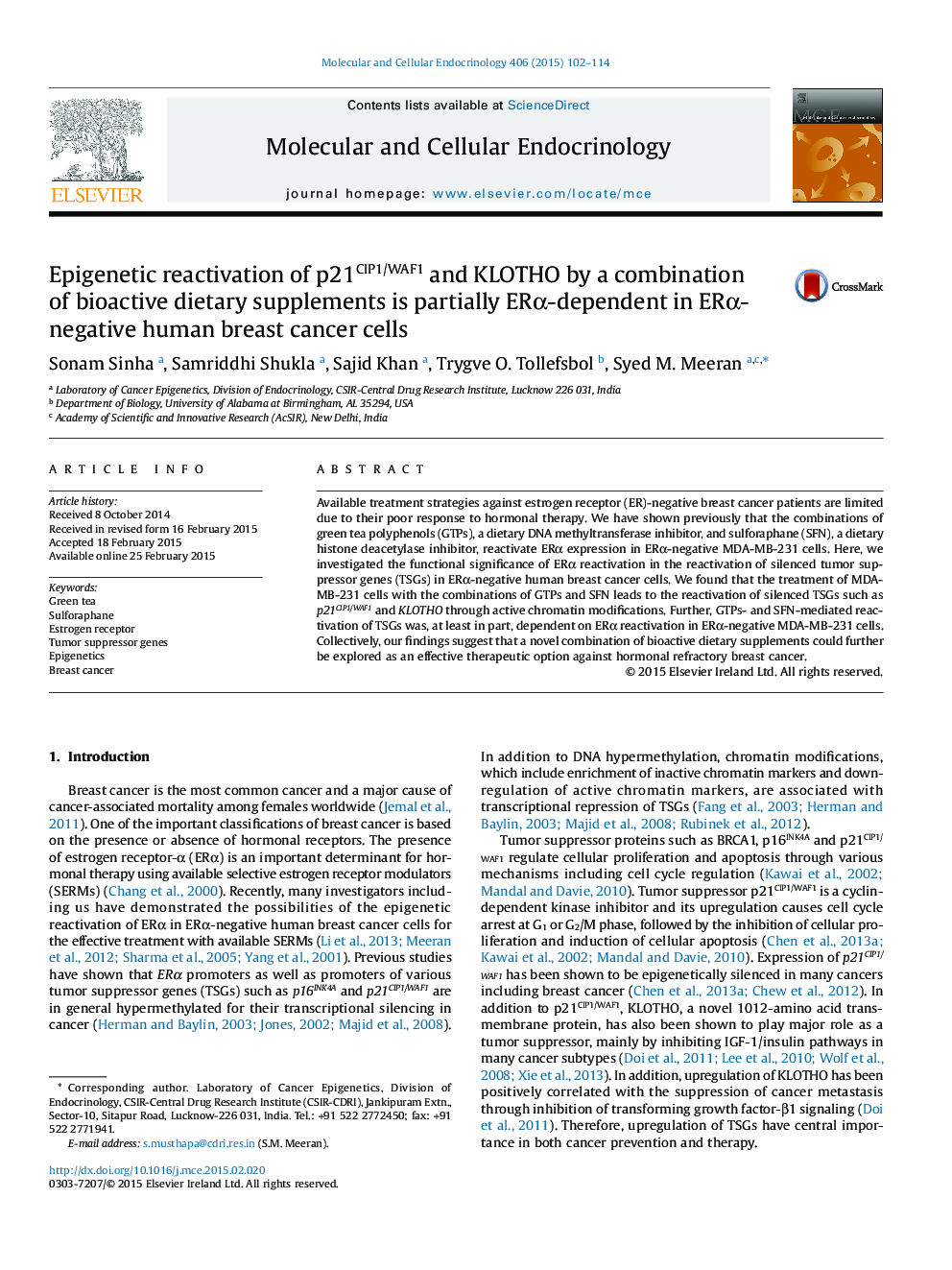| Article ID | Journal | Published Year | Pages | File Type |
|---|---|---|---|---|
| 2195850 | Molecular and Cellular Endocrinology | 2015 | 13 Pages |
•Dietary combinations of DNMT and HDAC inhibitors induce significant cell cycle arrest than the standard inhibitors.•Combinations of GTPs and SFN reactivate tumor suppressor genes (TSGs) in MDA-MB-231 cells.•The reactivations of TSGs are mainly mediated through the active chromatin modifications.•Reactivation of TSGs is partially dependent on estrogen receptor-α (ERα) reactivation in ERα-negative breast cancer cells.•The reactivation of silenced ERα sensitizes cells for the tamoxifen therapy.
Available treatment strategies against estrogen receptor (ER)-negative breast cancer patients are limited due to their poor response to hormonal therapy. We have shown previously that the combinations of green tea polyphenols (GTPs), a dietary DNA methyltransferase inhibitor, and sulforaphane (SFN), a dietary histone deacetylase inhibitor, reactivate ERα expression in ERα-negative MDA-MB-231 cells. Here, we investigated the functional significance of ERα reactivation in the reactivation of silenced tumor suppressor genes (TSGs) in ERα-negative human breast cancer cells. We found that the treatment of MDA-MB-231 cells with the combinations of GTPs and SFN leads to the reactivation of silenced TSGs such as p21CIP1/WAF1 and KLOTHO through active chromatin modifications. Further, GTPs- and SFN-mediated reactivation of TSGs was, at least in part, dependent on ERα reactivation in ERα-negative MDA-MB-231 cells. Collectively, our findings suggest that a novel combination of bioactive dietary supplements could further be explored as an effective therapeutic option against hormonal refractory breast cancer.
Graphical AbstractFigure optionsDownload full-size imageDownload high-quality image (62 K)Download as PowerPoint slide
